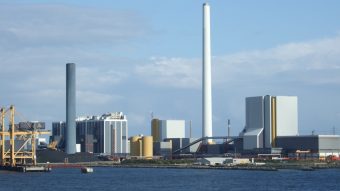
Eco-Industrial Parks (EIP) foster economic and social progress and help to protect the environment. This future-oriented eco-industrial development concept integrates industry and nature to offer businesses prospects for growth, improve eco-systems and foster innovation. UNIDO’s eco-industrial park approach is an inclusive and sustainable development strategy seeking to meet the Sustainable Development Goals (SDGs). It rejects the trade-off between economic growth and the environment.
Stephan Sicars is the Director of the Department of Environment at UNIDO, whose team implements the Organization’s eco-industrial park programme. He explains why there is little time left for shifting to the eco-industrial model:
“If the current business-as-usual practices are sustained, scientists estimate that by 2050 three planet Earths will be needed. Eco-industrial parks promote the circular economy, water resource conservation, recycling and the sound management of waste, as well as the utilization of industrial synergies.”
UNIDO promotes the development of national programmes on eco-industrial parks. These programmes link the existing local projects into a network of national stakeholders and help countries in a comprehensive and coordinated strategic planning of EIPs.
“Eco-industrial parks better integrate industries in the cities through the creation of shared economic opportunities, improved ecosystems and innovative avenues for responsible businesses. EIPs help to achieve the triple bottom-line benefits: economic, environment and social”, says Smail Alhilali, Industrial Development Officer at UNIDO.
In China, one of the most successful EIPs, the Shenyang Development Area (SDA), established a circular economy promotion fund (with a total value of US$4.8m) to support key industrial symbiosis projects. The bulk of investment is being dedicated to supporting public infrastructure at SDA for water pipelines, a natural gas pipeline and heat pumps. This led to increased competitiveness of companies, reduced resource costs, lessened dependence on coal, and increased sales due to “green” and niche marketing.
Modern eco-industrial parks drastically reduce negative environmental impacts caused by industrial operations through environmental management and pollution prevention systems. For example, in 2010, Vietnam Singapore Industrial Park I (VSIP I) was given the Award for Green Technology by the Vietnam Environmental Protection Association for its contribution to environmental conservation. A number of companies in the VSIP I, such as Procter & Gamble Indochina, Uchiyama, Yakult, Esquel Garment, MHE Demag Vietnam, Takako and Estec, have ISO 14001 certification. As a result, these companies are continuously seeking to improve their environmental and social performance through cleaner production and resource efficiency solutions.
Source: unido.org

